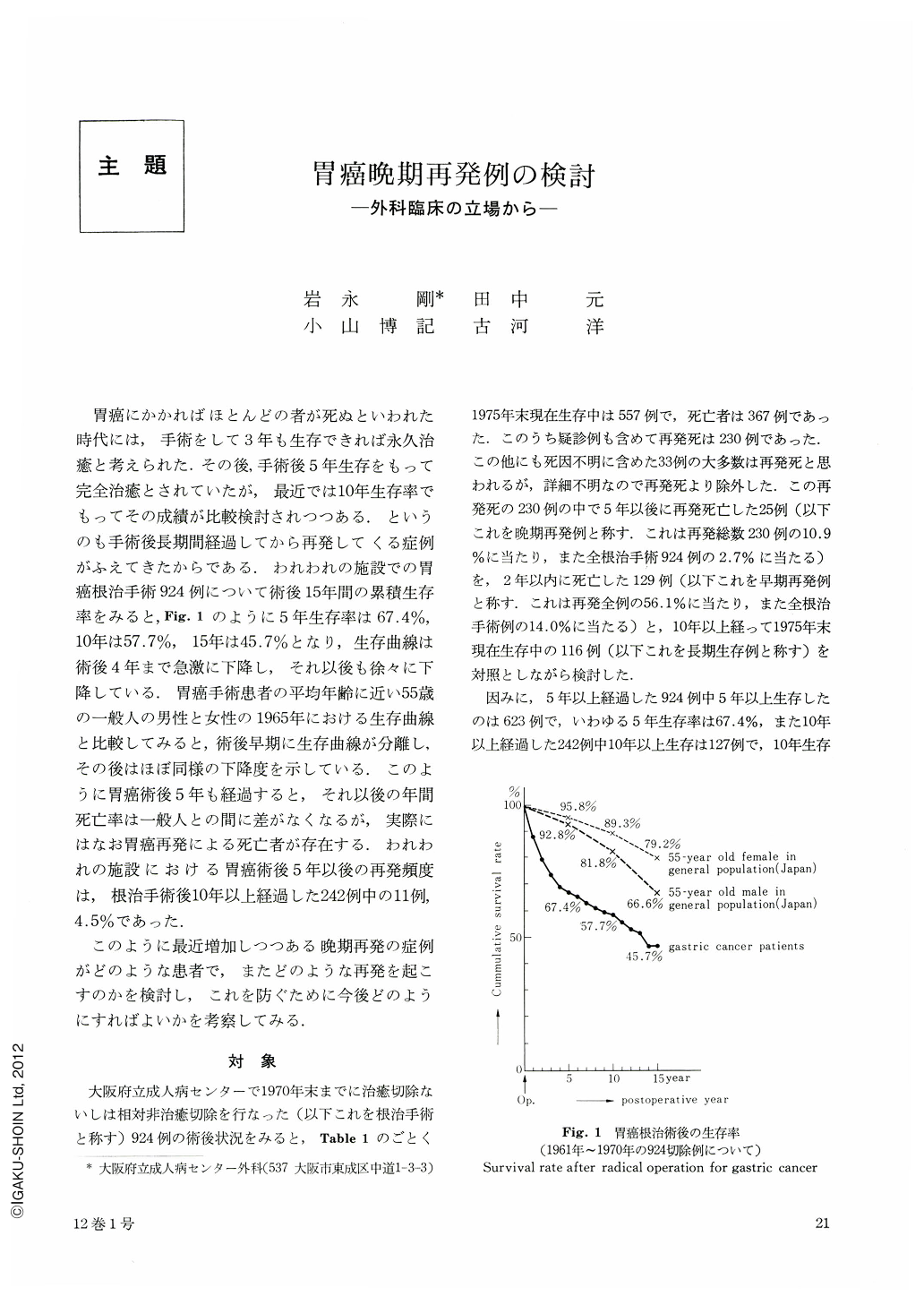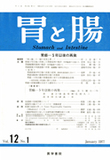Japanese
English
- 有料閲覧
- Abstract 文献概要
- 1ページ目 Look Inside
- サイト内被引用 Cited by
胃癌にかかればほとんどの者が死ぬといわれた時代には,手術をして3年も生存できれば永久治癒と考えられた.その後手術後5年生存をもって完全治癒とされていたが,最近では10年生存率でもってその成績が比較検討されつつある.というのも手術後長期間経過してから再発してくる症例がふえてきたからである.われわれの施設での胃癌根治手術924例について術後15年間の累積生存率をみると,Fig.1のように5年生存率は67.4%,10年は57.7%,15年は45.7%となり,生存曲線は術後4年まで急激に下降し,それ以後も徐々に下降している.胃癌手術患者の平均年齢に近い55歳の一般人の男性と女性の1965年における生存曲線と比較してみると,術後早期に生存曲線が分離し,その後はほぼ同様の下降度を示している.このように胃癌術後5年も経過すると,それ以後の年間死亡率は一般人との間に差がなくなるが,実際にはなお胃癌再発による死亡者が存在する.われわれの施設における胃癌術後5年以後の再発頻度は,根治手術後10年以上経過した242例中の11例,4.5%であった.
このように最近増加しつつある晩期再発の症例がどのような患者で,またどのような再発を起こすのかを検討し,これを防ぐために今後どのようにすればよいかを考察してみる.
The rate of recurrence more than five years postoperatively was 4.5% among 242 patients who received radical resection for gastric carcinoma more than ten years previously. Twentyfive patients with late recurrence (more than five years postoperatively) were compared with 129 patients with early recurrence (within two years) and 116 long term survivors (surviving more than ten years).
In regard to stages of gastric carcinoma at the initial operation, early cancer was mostly seen in long survivors and advanced cancer often developed early recurrence. There was no specific stage that developed late recurrence frequently. However, the percentage of early gastric cancer in the late recurrence group was definitely higher than that in the early recurrence group. Late recurrence cases were intermediately situated between early recurrence cases and long survivors in respect to the macroscopic type of the primary lesion, the extent of lymphatic involvement and the degree of stromal reaction. Local and peritoneal involvement was most often seen in early recurrence cases, and recurrence of the remnant stomach or stump was observed in a relatively high rate of late recurrence cases. It was also characteristic to late recurrence that scirrhous infiltration type of peritoneal involvement was found almost exclusively in this group.
We assume that the following four conditions would be necessary for late recurrence: (1) cancer cells left at the time of operation should be small in number; (2) remaining cancer cells should be disadvantageously located for spread; (3) proliferation of cancer be slow; (4) host resistance be active. We often found findings suggestive of the above conditions in our late recurrence cases. Contageous infiltration and lymphatic involvement seemed to be the origin of late recurrence.
Further development in surgical procedures and supplementary therapeutic measures such as chemotherapy and immunotherapy are expected to decrease the late recurrence, and to improve the follow up results of gastric cancer.

Copyright © 1977, Igaku-Shoin Ltd. All rights reserved.


